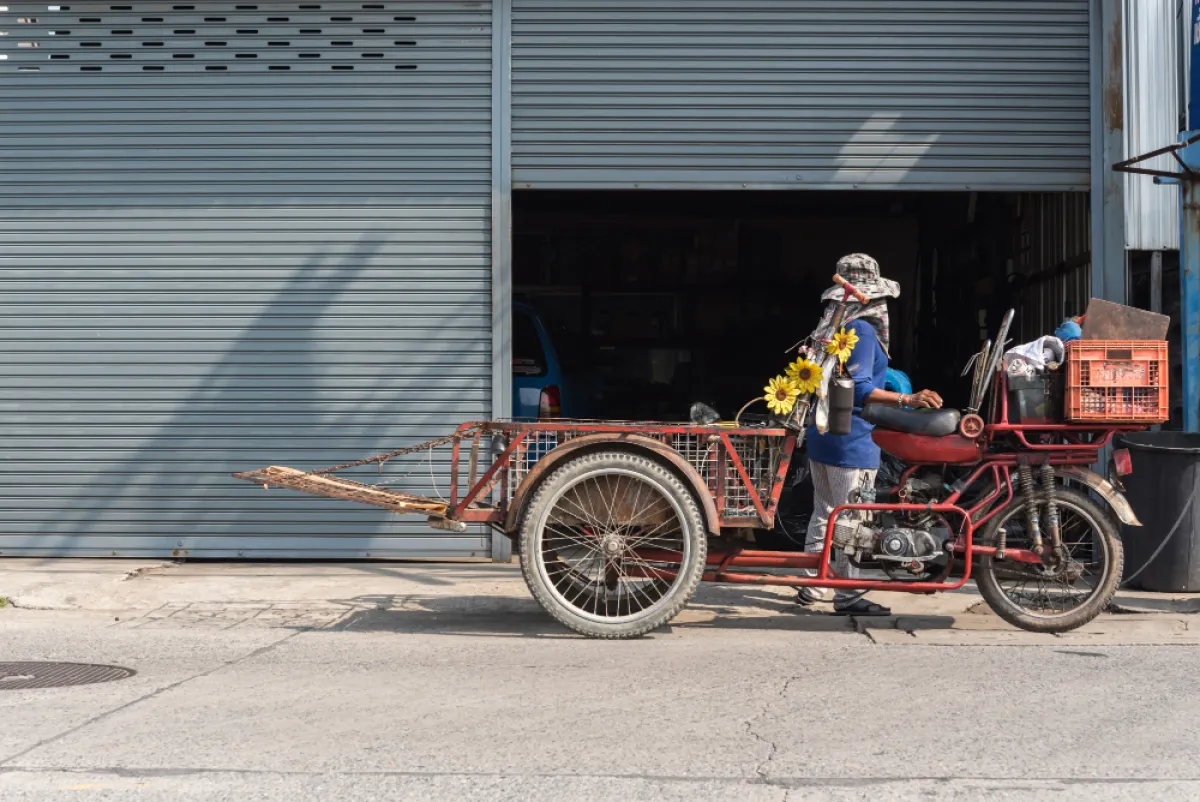
Did you know that recycling waste, and reintroducing it for reuse not only helps in mitigating the problem of accumulated waste, but also creates long-term value for communities and businesses? Therefore, the Pollution Control Department (PCD) has organized training programs to enhance the capabilities of roaming peddlers ('Saleng') and used goods stores, under the project for the development and management of waste sorting and reuse, in order to reduce environmental and health impacts. This initiative involves the participation of 'Saleng' and used goods stores, with funding support from the Thai Health Promotion Foundation (ThaiHealth).
The approach to sort waste at the source involves 'Saleng' and used goods stores as mechanisms to ensure that various types of plastic and packaging waste from households, buildings, offices, and other sources are reused as raw materials in industries, thus ensuring that “waste” is not “waste” but a “resource” to be reused, in accordance with the circular economy principles. This aligns with the government's new economic policy (BCG Model), which is declared a national agenda, and supports the policy to ban plastic waste imports in the next two years.
Both 'Saleng' and used goods stores play a crucial role in the recycling business, acting as intermediaries in the collection or purchase of recyclable waste or leftover materials.
As for the training to develop the capabilities of 'Saleng' and used goods stores under the project for the development and management of waste sorting and reuse, it will be conducted in every region of the country, including the Central, Northern, Northeastern, Eastern, and Southern regions. This will provide knowledge about sorting different types of waste, appropriate work practices, precautions against certain hazardous substances to prevent adverse impacts on the health of workers, the environment, and neighboring residents, compliance with various regulations, and the use of the "Recycle Hero" application to enhance efficiency in the trade of recyclable waste in the 'Saleng' and used goods store profession, thereby playing a significant role in driving the country's circular economy.
Furthermore, the training of 'Saleng' and used goods stores must involve a shift in attitude towards municipal waste, seeing it as a resource that can be reused, adding value and income, as well as reducing production costs. The work of 'Saleng' and used goods stores requires the separation of different types of materials to prevent contamination, such as glass, paper, plastic, aluminum, copper, and iron, to increase the value in selling them, without causing environmental impact, contamination of heavy metals and toxins in the surrounding area, and to improve the health and hygiene of workers and community members. This also includes the opportunity to form networks of organizations to reduce inequality.
Data updated on December 9, 2022
Source : Department of Pollution Control
Tel: +66 2298 2000